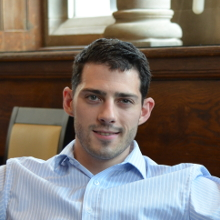
Nick completed his undergraduate degree (BSc. Adv. Hons.) at Monash University (Australia) in 2011, under the supervision of Prof Keith S. Murray. In 2013 he forwent the beautiful Melbourne climate and moved to Manchester as a President's Doctoral Scholar for his PhD, wherein he investigated the magnetic anisotropy of transition metal compounds.
In 2015 he won the RSC Dalton Young Researcher's Award and undertook a short post-doctoral position with the EPSRC National EPR Facility, and in 2016 he was awarded a British Ramsay Memorial Fellowship. He is investigating the design and the properties of magnetically ansiotropic molecules using spectroscopic, magnetometric and theoretical techniques. Chilton group website
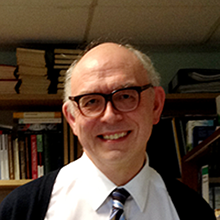
Professor David Collison is the Co-Director of the EPSRC National Service for EPR Spectroscopy and former Chair of the RSC ESR Spectroscopy Group. DC obtained both his degrees from the University of Manchester. His PhD was supervised by Prof Dave Garner and Prof Ian Hillier and he worked in Dr Frank Mabbs' lab.
After completing a Royal Society University Research Fellowship he was appointed Senior Lecturer in Manchester in 1994, Reader in 1998 and to a Chair in 2007. DC is an expert in the electronic structure of d- and f-block metals in co-ordination chemistry, biology and materials science and is co-author of the authoritative textbook on EPR spectroscopy of transition metals.
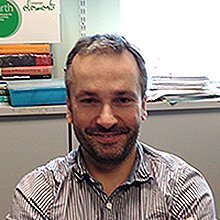
Eric is a Professor of Inorganic Chemistry at Manchester and co-Director of the EPSRC funded National Facility for EPR Spectroscopy. He obtained both his BSc and PhD at Edinburgh University, the latter under the supervision of Prof Lesley Yellowlees. After post-doctoral spells with Drs Frank Mabbs and David Collison at Manchester, and with Profs Andrew Thomson FRS and Annie Powell at UEA, he was appointed to a lectureship at Manchester in 2000. He was promoted to a personal chair in 2007. Eric was awarded the International EPR Society Medal for Chemistry in 2015, and is currently Chair of the RSC EPR Group.
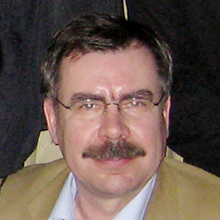
Grigore completed his PhD with Prof Nicolae Gerbeleu at the Institute of Chemistry, Academy of Sciences of Moldova, Chisinau. He was successively Senior Scientific Researcher and then Coordinator of Scientific Research in the same institute. He obtained fellowships from the Royal Society to work with Prof Winpenny, and from the Max-Planck Society and DAAD to pursue research with Prof Karl Wieghardt and Dr Eva Rentschler at the MPI, Mülheim. The Danish Natural Science Research Council funded work with Prof Finn Larsen (Aarhus). He now works in Manchester as a senior researcher (2003-) and as an honorary lecturer (2008-).
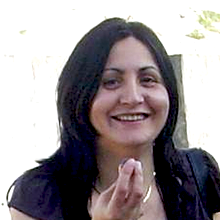
Floriana Tuna obtained her PhD in Inorganic Chemistry in 1998 from the Institute of Physical Chemistry of the Romanian Academy. She worked as a senior researcher at the Institute of Physical Chemistry Ilie Murgulescu and teaching associate at the University of Bucharest before moving to the University of Heidelberg as a DAAD fellow in 2000. She did postdoctoral studies in molecular magnetism at ICMCB Bordeaux and held a Marie Curie Individual Fellowship in supramolecular chemistry at the University of Warwick (2001-2003), before moving to Manchester in 2003. Her interests are in molecular magnetism, EPR spectroscopy and quantum computing.

Richard Winpenny was born in the beautiful Welsh coastal town of Port Talbot, which then nestled between a chemical works and a steel mill. He obtained both his degrees from Imperial College London; his PhD studies were with Prof. David Goodgame on coordination polymers before they were renamed MOFs. After a postdoctoral position with Prof. John Fackler Jr., at Texas A&M University he joined the staff at the University of Edinburgh in 1990. After ten years in the frozen wastelands of northern Britain he moved to Manchester as Professor of Inorganic Chemistry in 2000. He has published around 350 papers.
He won a Royal Society Wolfson Merit Award in 2009 and the Royal Society of Chemistry Tilden Medal in 2011 and Ludwig Mond Prize in 2016 in recognition of his research in molecular magnetism. He is on the Board of Directors of the European Institute for Molecular Magnetism, and is currently Head of School of Chemistry at Manchester for his sins. His spin-out company, Sci-Tron Ltd, won the RSC Emerging Technologies Prize in Materials in 2016.

Deepak obtained his Bachelor in Science (B.Sc.) degree with subjects Maths and Chemistry in 2005 from Ewing Christian College, and Master in Science (M.Sc., 2007) in Chemistry from University of Allahabad, India. Deepak completed his Ph.D. with specialization in Supramolecular & Materials Chemistry (2013) working under supervision of Prof. Pritam Mukhopadhyay at Jawaharlal Nehru University, New Delhi, India. After that, he moved to Kyushu University, Japan as a JSPS postdoctoral researcher under Prof Nobuo Kimizuka (2014-2016) where he came across the field of triplet-triplet annihilation based photon up-conversion and lipid chemistry. Since December 2016, he has been part of Molecular Magnets team at The University of Manchester, working as a postdoctoral research associate with Prof Richard Winpenny. Deepak is involved in design and synthesis of {Cr7M}-rotaxane for their application in single molecule spintronic circuits.

Jonny completed his undergraduate degree (MChem, Hons) at the University of Manchester in 2014, carrying out a final year project under the supervision of Dr. David Mills targeting organometallic Ce complexes with Ce=E multiple bonds. He then moved to the University of Leeds to carry out a PhD supervised by Prof. Michaele Hardie and Dr. Charlotte Willans, preparing metallosupramolecular assemblies and multimetallic metal-NHC complexes using functionalised cyclotriveratrylene ligands. Jonny returned to the University of Manchester in July 2018 to join the magnets group as a research associate to prepare supramolecular assemblies of [n]-rotaxanes as potential quantum logic gates.
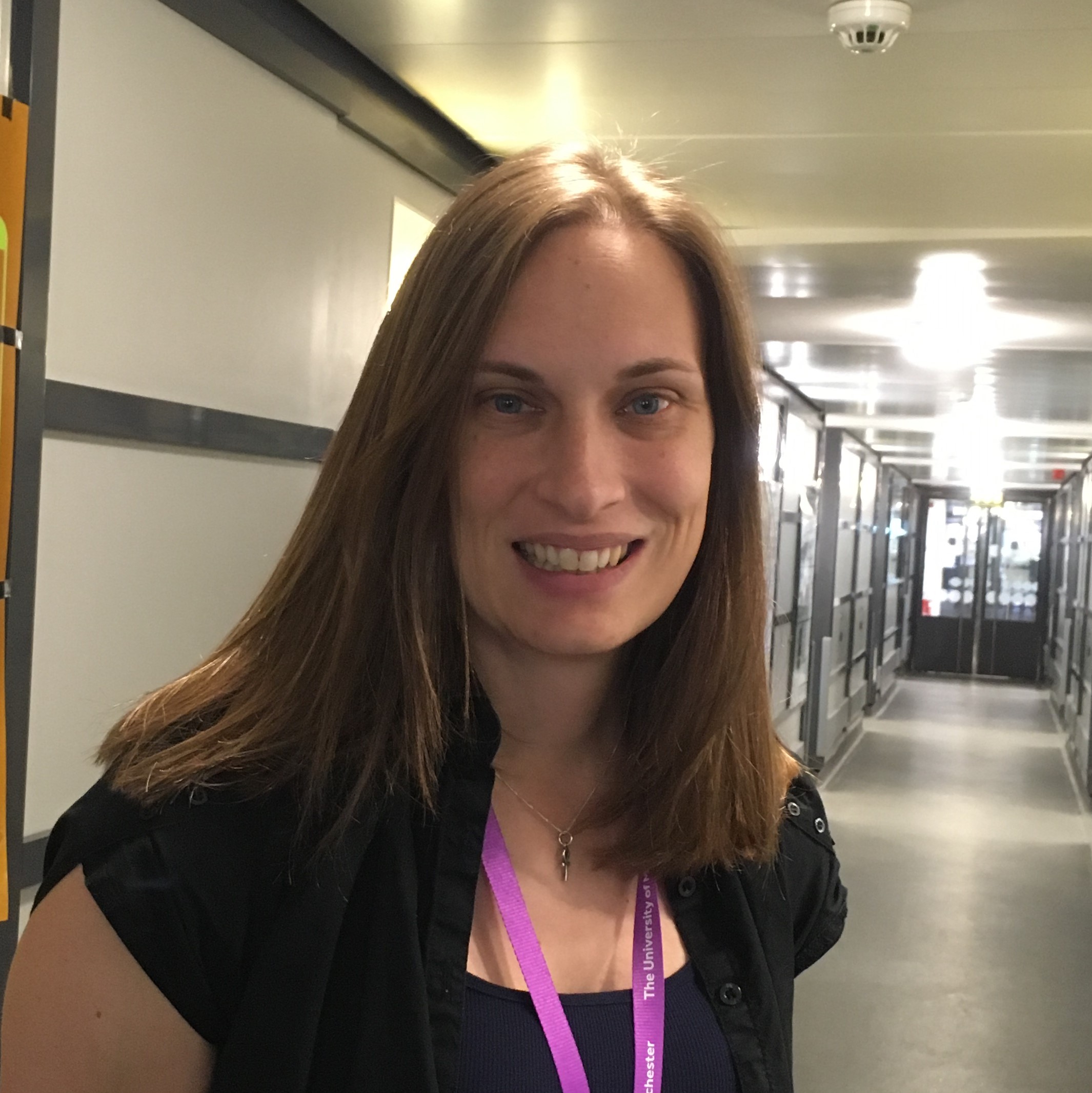
Selena graduated from the University of Manchester in July 2015 with a MChem degree. During her undergraduate she completed a summer project in the Mills group synthesising bulky amide ligands for the stabilisation of subvalent lanthanides in low oxidation states and low coordination numbers. She also studied abroad at the University of British Columbia, which included a project using a tantalum catalyst for hydroaminoalkylation. She joined the magnets group for her MChem project to research the synthesis of different sized {CrxNi} rings using various templates to control the products. She began her PhD in the magnets group in September 2015 under the supervision of Prof. Eric McInnes and Prof. Richard Winpenny. Her research focused on investigating weak exchange interactions using supramolecular chemistry and EPR spectrscopy featuring {Cr7Ni} rings. Her current post-doc role in the group continues this research, including applying new advanced pulse EPR techniques.
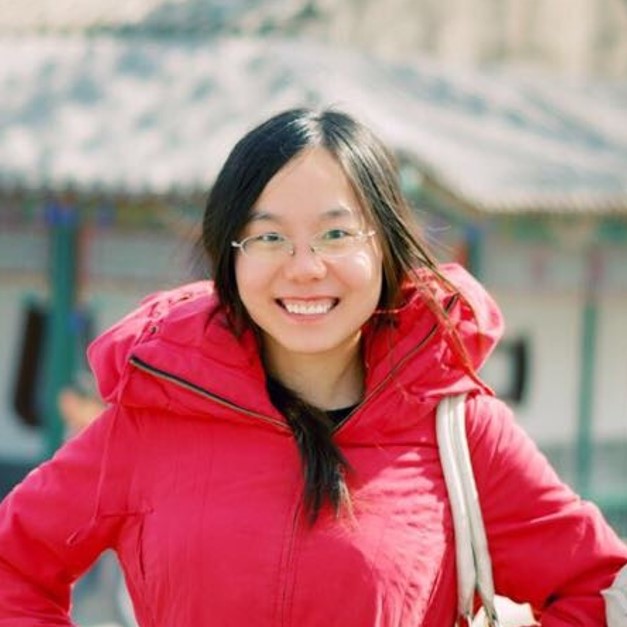
Dr. Tian Han obtained her PhD degree from Nankai University in Tianjin, China, under Prof Peng Cheng on the syntheses of SMMs and SCMs based on lanthanide-nitronyl nitroxide radical system. After that, she went to Xi’an Jiaotong University as a post-doctoral researcher in the group of Prof Yanzhen Zheng. She was then appointed as a lecturer by Xi’an Jiaotong University in 2017. In September 2018, Tian joined in the group of Prof Richard Winpenny as a visiting academic, working on the deep investigation of lanthanide SMMs.
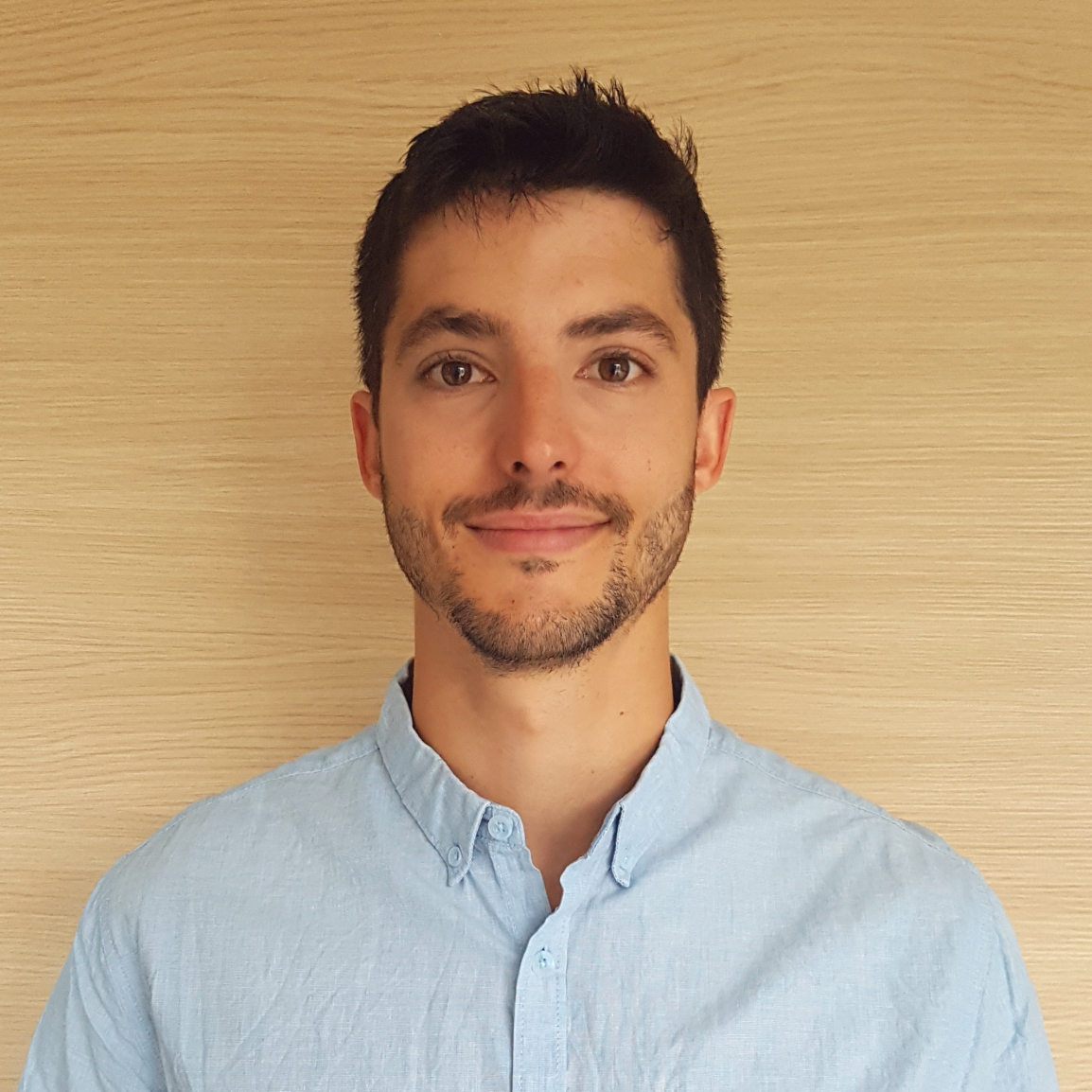
Dani completed his BSc in Chemistry at the University of Navarra (Spain) in 2011 and his MSc in Nanoscience and Nanotechnoly at the University of Barcelona in 2012 within the GMMF group, where he took on the challenge to synthesise multifunctional magnetic molecules. He then naively swapped the lab coat for a computer and miraculously obtained his PhD in theoretical and computational chemistry (2012-2016) under the supervision of Prof. Illas and Dr. Moreira at the University of Barcelona, investigating 3d-based molecular magnets and organic polyradicals. In 2016 he moved to Manchester to work with Prof. Kaltsoyannis as a PDRA on a project that identified appropriate computational approaches to describe the structural and spectroscopic properties of actinide-based molecules. In 2017 Dani joined Dr. Chilton's group where, to the present day, he is investigating the static and dynamical properties of highly axial, actinide-based single molecule magnets.
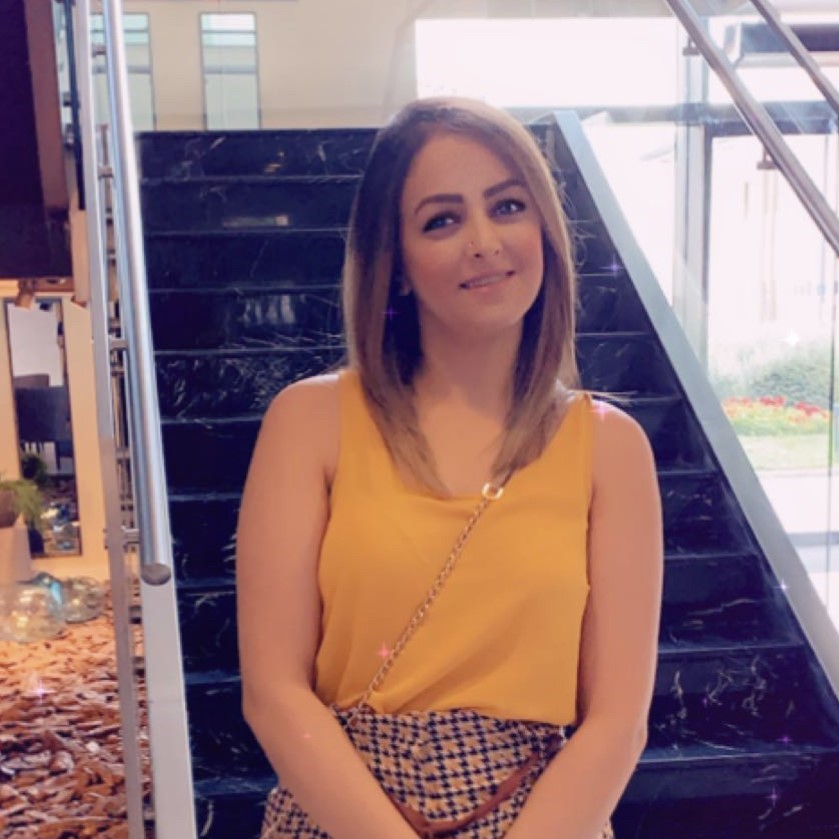
Dr Selina Nawaz is a Computational Chemist currently working at the School of Chemistry in the Computational Chemistry Group. She graduated with a MChem in Chemistry and Industrial Experience and further went on to study for a PhD under the supervision of Dr Paola Carbone in the School of Chemical Engineering and Analytical Science (CEAS) at the University of Manchester. Her PhD is entailed Molecular Dynamics Simulations of Amphiphilic Macromolecules at Interfaces. At the end of her PhD she was awarded an EPSRC Doctoral Prize Fellowship for two years where she continued her research investigating macromolecules at interfaces using Molecular Dynamics Simulations. During her fellowship, she also achieved a Royal Society of Chemistry grant to travel to Lyon and work with a internationally renowned scientist to develop a Coarse-Grain Force Field for various polymeric systems for use in Molecular Dynamics Simulations. On completion of her fellowship grant as a postdoctoral researcher, she decided to work in the pharmaceutical industry as a computational Chemoinformatician for a few years. More recently, she returned to academia with a passion for research and teaching.
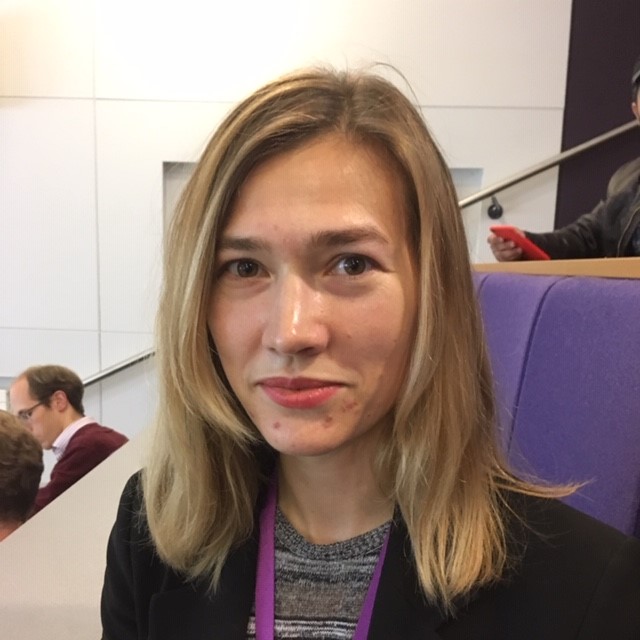
Dr. Alena Sheveleva obtained her PhD degree in February 2015 from Novosibirsk State University, Russia, under supervision of Prof Alexandr G. Stepanov and Prof Matvei V. Fedin on application of NMR and EPR spectroscopy for investigation of probe molecule mobility in micro- and mesoporous materials. After that, she worked as post-doctoral associate researcher in the Laboratory of Magnetic Resonance in International Tomography Center SB RAS. In summer 2016 she won RSC Mobility Grant and in January 2017 started collaborative project with Dr Floriana Tuna and Prof Eric McInnes aimed to evolve application of EPR spectroscopy for MOF materials. In 2019 won International Newton Fellowship and joined the group as post-doctoral researcher focused on pulsed EPR studies of toxic air pollutants adsorption in MOF materials.
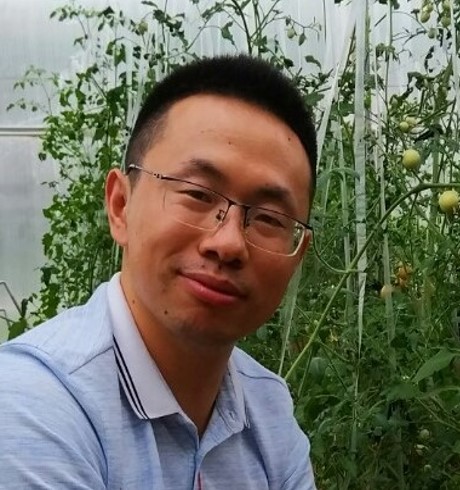
Dr. You-Song obtained his Bachelor in Science (B.Sc.) degree with Applied Chemistry in 2013 from Xi’an Jiaotong University, then he stared his Ph.D. study with Materials science and Engineering supervised by Prof.Yanzhen Zheng at Xi’an Jiaotong University and got Doctor Degree in December 2017, working on construction and magneto-structural correlation of high-performance Dysprosium(III) single-molecule magnets. In October 2018, he joined in Molecular Magnets team at The University of Manchester, working as a postdoctoral research associate with Prof Richard Winpenny. Now he is involved in magneto-structural correlation of pentagonal bipyramidal lanthanide complex for single-molecule magnets or spin qubits.
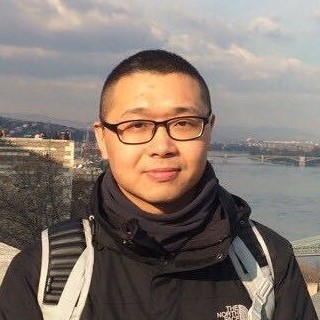
Yingzhao Ma obtained his master degree from South China normal university. There, his research focused on the synthesis of 3d-4f MOFs materials and their gas separation and magnetic related applications. After that, he went to Karlsruhe Institute of Technology for his Ph.D. research. His Ph.D. thesis focused on the fundamental research concerning low valent metal complexes and their reducing chemistry towards group 16 elements. Now he is working here on the synthesis of diamagnetic [n] rotaxanes and the related application in quantum information processing.
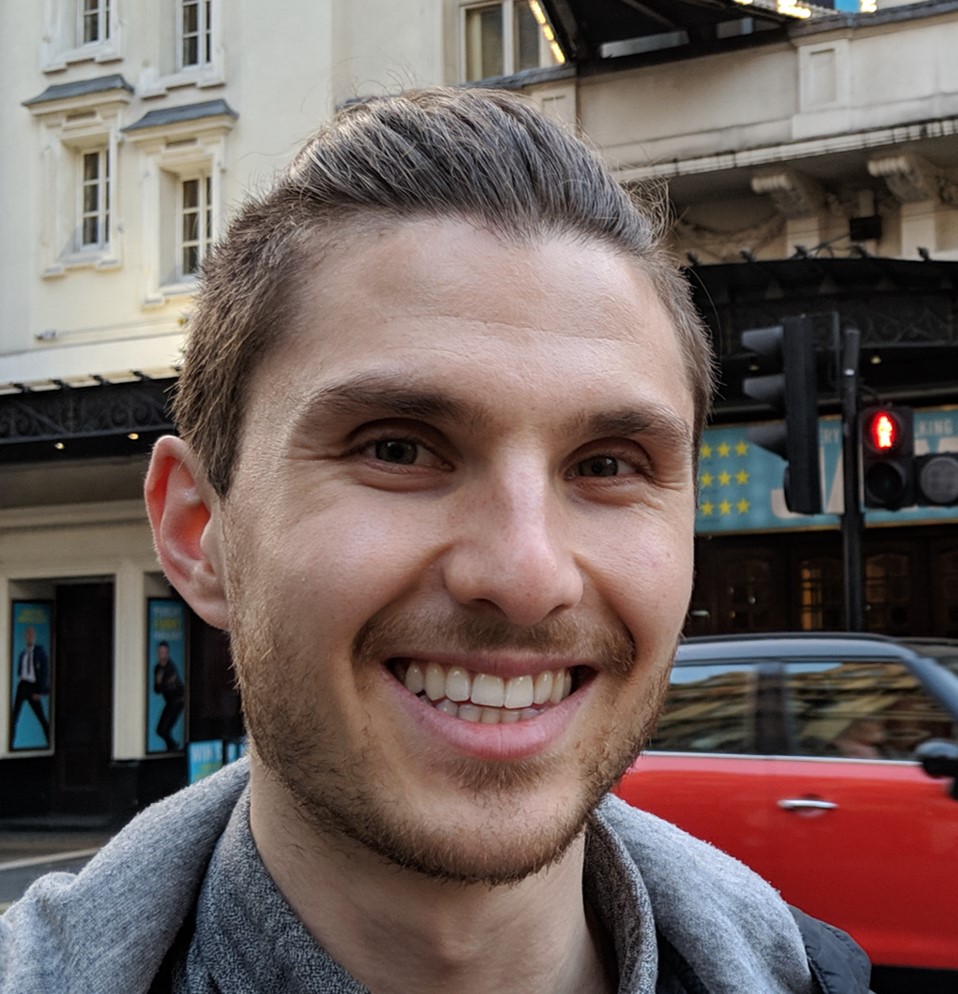
Marcus’ first exposure to research began with an undergraduate research project as part of the Robson/Abrahams group at The University of Melbourne. He went on to complete his MSc in Chemistry with a joint project between the Boskovic and Soncini research groups, involving the experimental and computational investigation of polyoxometalate supported single-molecule magnets. Marcus completed his PhD as a President’s Doctoral Scholar at the University of Manchester under Prof. Richard Winpenny and Dr Nicholas Chilton, focussing on the examination of the magnetic interactions between 4f ions in polymetallic complexes and magnetic relaxation mechanism of single-molecule magnets. He has continued on in Manchester as a PDRA with Dr David Mills and Dr Nicholas Chilton, managing the EPR and SQUID magnetometry measurements of 3d, 4f and 5f molecular systems made by the Mills group.
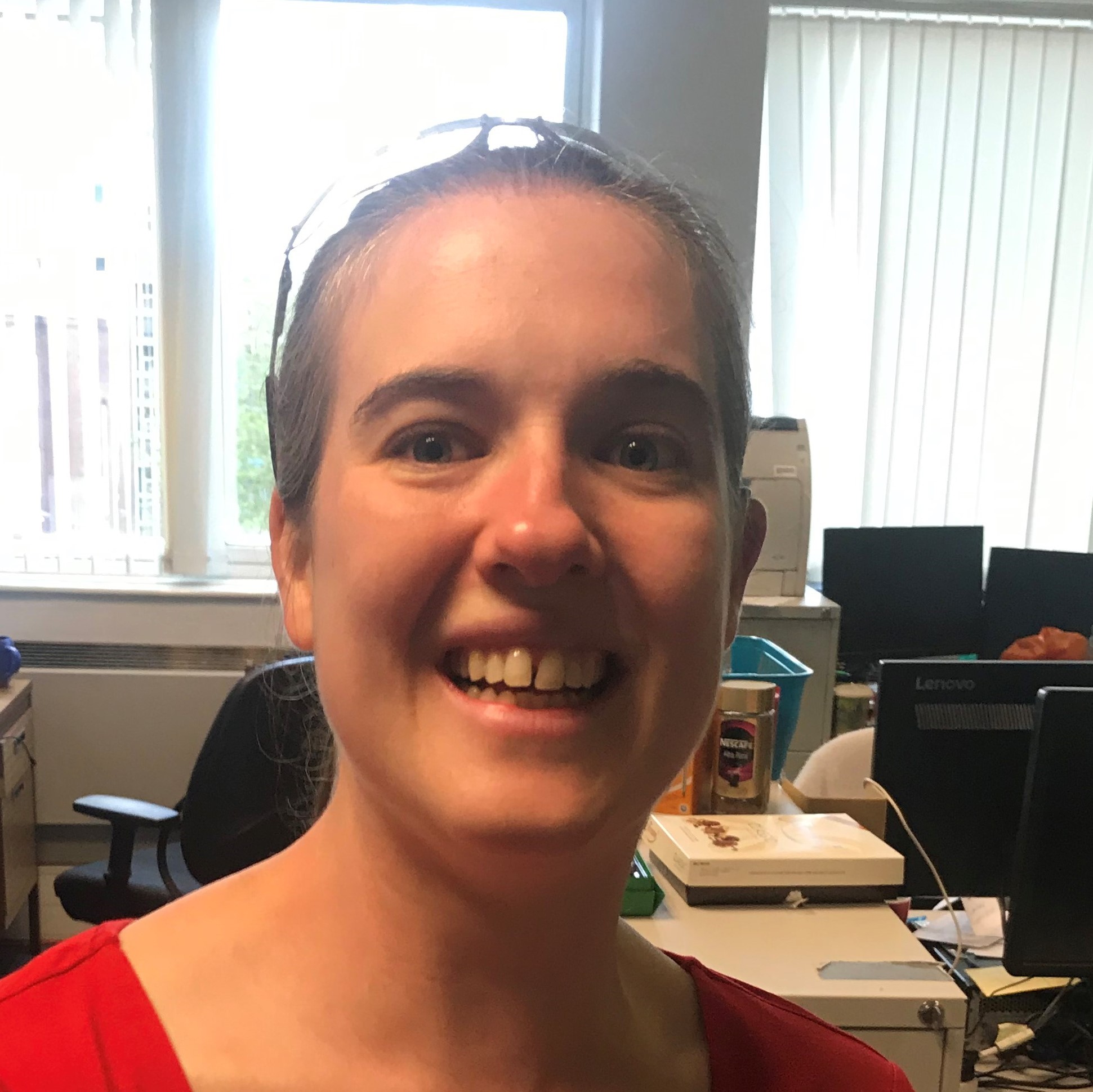
Claire joined the group in August 2018 as a post-doc. Her synthetic work targets potential photoresist materials for EUV( Extreme Ultraviolet) and EBL (electron beam) lithography in collaboration with Sci-Tron. Claire began her PhD in lanthanide crystal engineering working with Dr Ulrich Baisch at Newcastle University. In 2013 she was awarded a one-year Fulbright fellowship and joined the multidisciplinary biomimetic materials research group of Professor Joanna Aizenberg at Harvard University. On her return to Newcastle, she completed her PhD in ‘Lanthanide complexes of bulky hybrid ligands’ under the supervision of Dr Keith Izod in 2017.
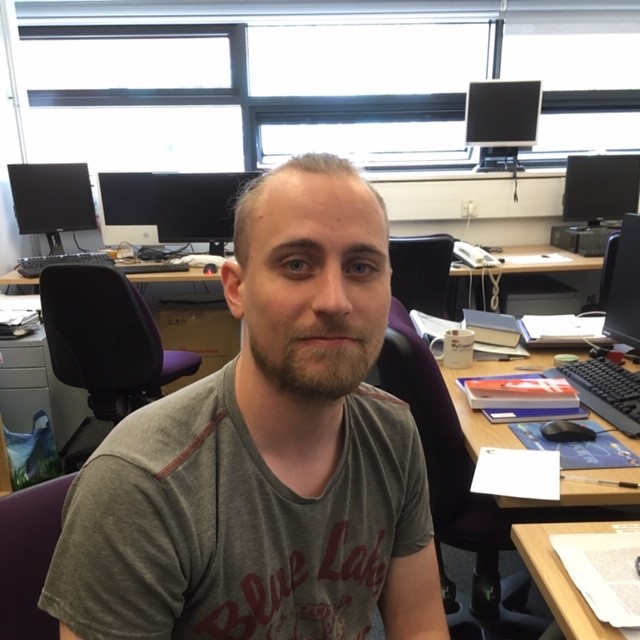
Jonatan graduated both his BSc and MSc in chemistry from the University of Copenhagen. His masters thesis was supervised by Prof Jesper Bendix and explored the synthesis and characterisation of highly symmetric lanthanide complexes, using platinum based metalloligands. He then moved on to do a PhD in the MolMag group supervised by Prof Richard Winpenny, Prof Eric McInnes and Dr Floriana Tuna. His work is focused on measuring and simulating magnetic properties of lanthanide SMMs using EPR spectroscopy.

Kexin obtained her Bachelor in Science (BSc.) degree from School of Chemical and Molecular Engineering, Zhengzhou University, China in 2015. And then she continuted her study at Xi’an Jiaotong University under the supervision of Prof. Yanzhen Zheng. In 2017, she became a PhD student, her project focused on the synthesis of lanthanide single molecule magnets (SMMs), especially the rational design of local coordination environment and exchange coupling. In 2018, she joined in the group of Prof. Richard Winpenny as a joint PhD student to futher investigate the mechanism of SMMs.
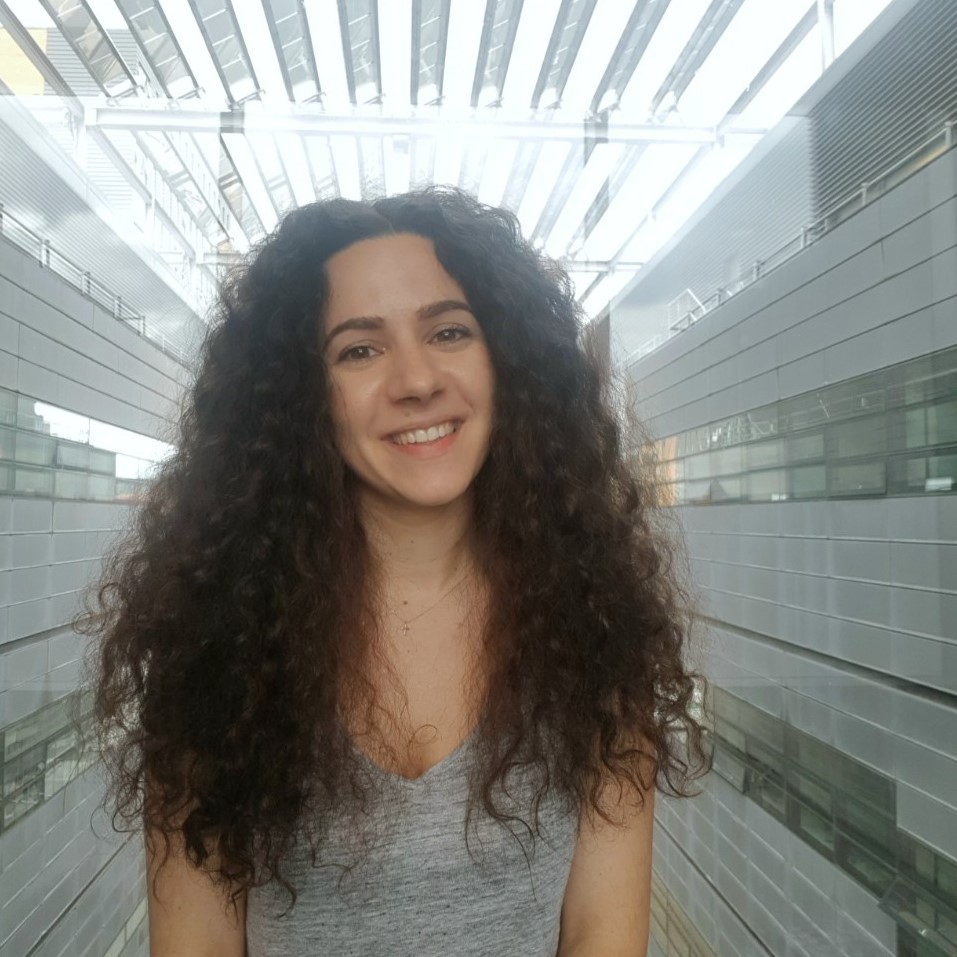
Lydia completed her Bachelor and Master degree in chemistry at the University of Crete. During her masters she was involved in the synthesis and magnetic characterisation of polynuclear transition metal complexes supervised by Dr Constantinos Milios. She joined the group in September 2016 for her PhD studies, under the supervision of Dr Floriana Tuna, Prof Eric McInnes and Dr David Mills. Her PhD project concerns on the use of advance pulse EPR and magnetic methods to probe the electronic structure of organometallic f-block metal complexes, investigating the nature of their bonding, reactivity and coherence properties.
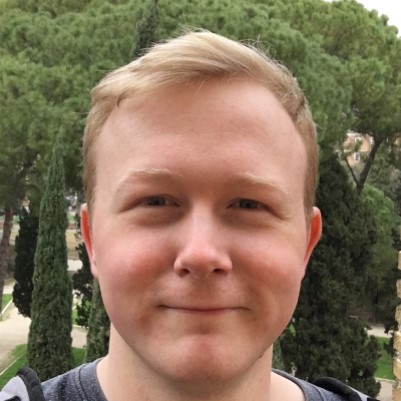
Jon is a PhD student supervised by Nick Chilton. Previously, he carried out both a 3rd year summer research project funded by the RSC, and his 4th year MChem project in the group, studying the electronic structure of near-linear transition metal complexes and creating a new tool for extracting the crystal field Hamiltonian from CASSCF calculations. Currently his research focusses on computationally exploring the role of vibrations in the magnetic relaxation of single-molecule magnets.
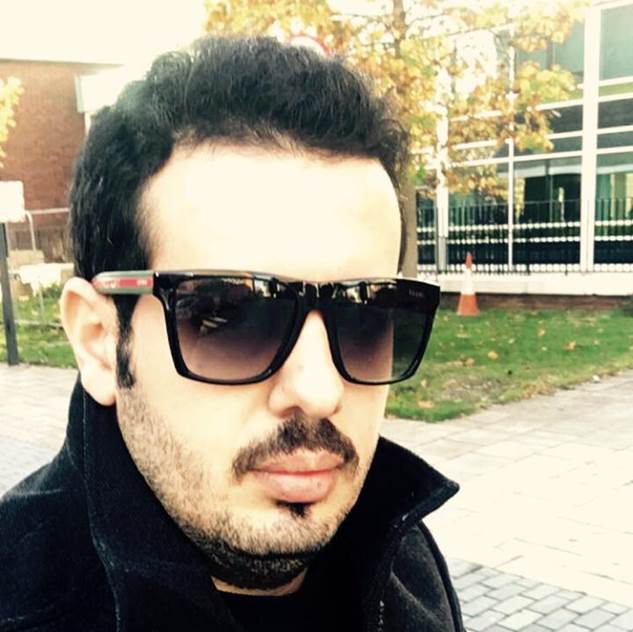
Fahad obtained his Bachelor of Chemistry with Chemical Engineering (2010-2013) at University of Huddersfield, (HUDDERSFIELD - UK), and Master degree of Chemistry (2013-2014) at University of Manchester, (MANCHESTER-UK). Currently, he is doing a PhD in Chemistry at University of Manchester, (MANCHESTER-UK) under the supervision of Professors Richard Winpenny. His research focuses on the synthesis and structural characterization of 3d-4f cage complexes.
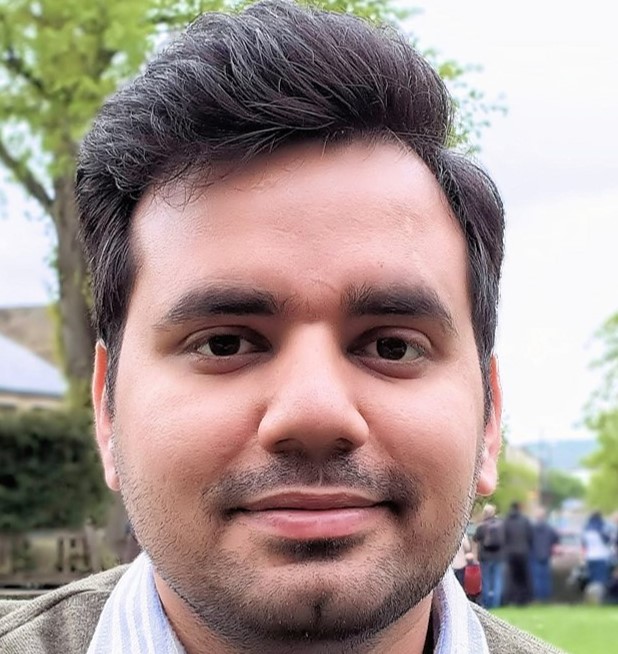
Vijay graduated (BS-MS dual degree) with Majors in Chemistry and Masters with research in Inorganic Chemistry from the Department of Chemistry, Indian Institute of Science Education and Research Bhopal (IISERB) in 2016. He carried out his final year research project targeting the synthesis and characterization of Cobalt based Single-Ion Magnets (SIMs). He moved to the University of Manchester in 2017 to join the MolMag (magnets) group as a PhD Student under the supervision of Prof Richard Winpenny and co-supervised by Dr David Mills. His PhD project deals in the synthesis and Physical investigation of Low-coordinate Lanthanide Single-Molecule Magnets (Ln SMMs).
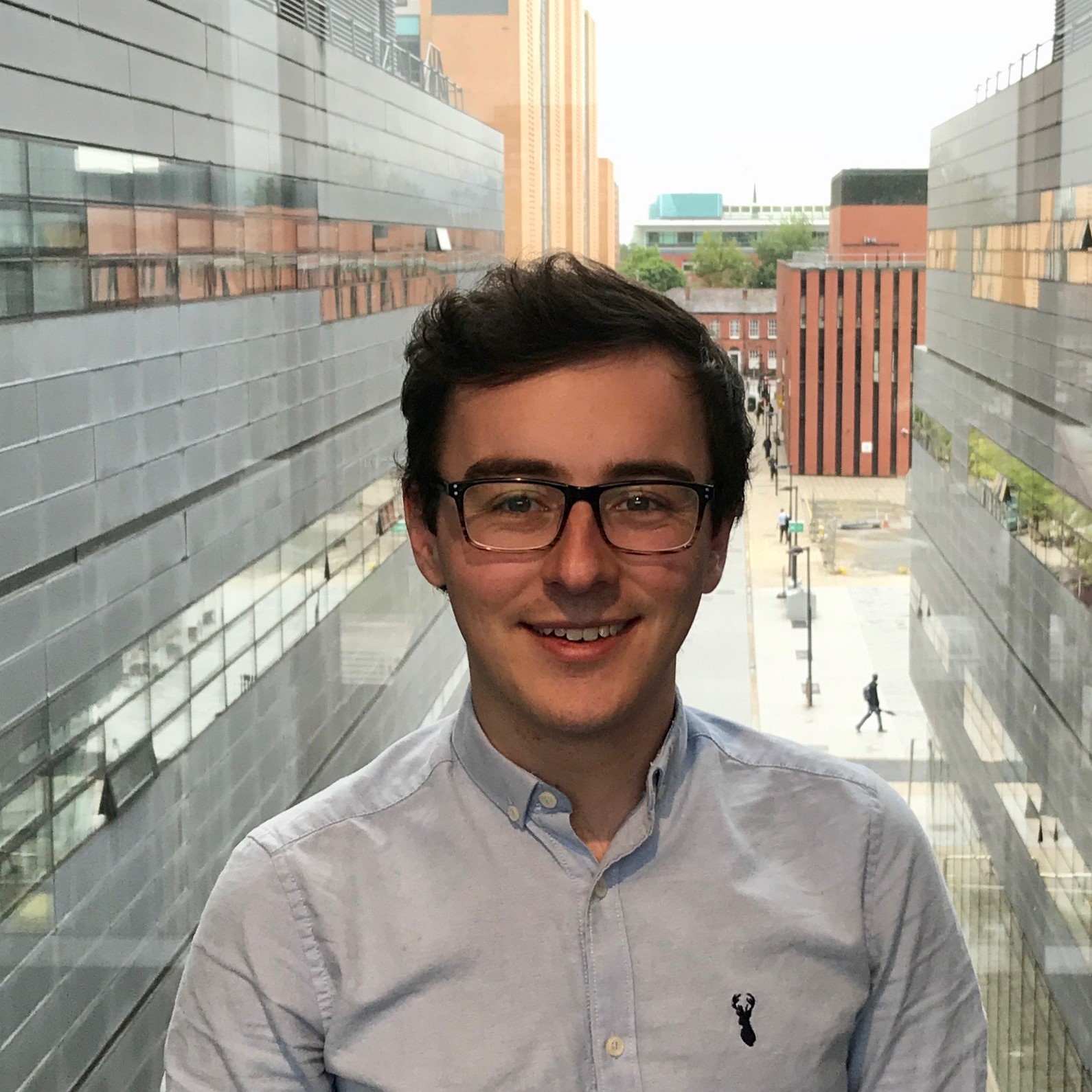
Edmund received his MChem degree from the University of Oxford. His master’s project was in the groups of Dr Alice Bowen and Prof. Christiane Timmel, where he used pulse EPR spectroscopy to quantify through-bond coupling in bent metalloporphyrin oligomers. He joined the group in September 2018 to begin a PhD project under the supervision of Profs. Richard Winpenny and Eric McInnes. His research focusses on using recent developments in EPR instrumentation to investigate the interactions between linked {Cr7Ni} rings and related heterometallic clusters.
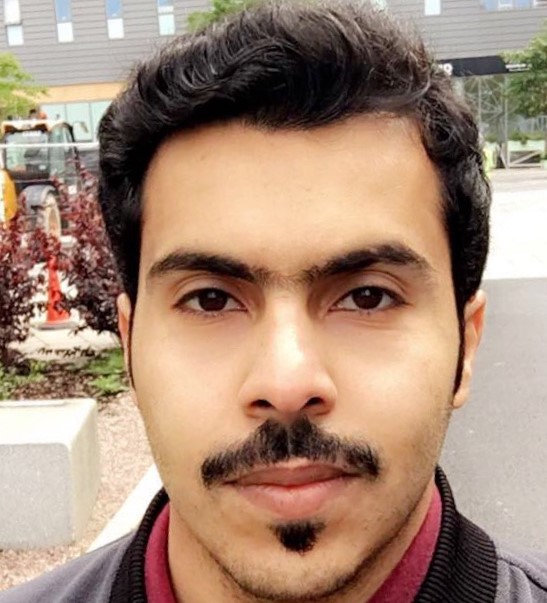
Rajeh completed his BSc in chemistry at King Saud University in Riyadh, Saudi Arabia in 2010. He then obtained his MSc in inorganic chemistry in December 2015 at Middle Tennessee State University, US. He joined the group in April 2018, working towards a PhD under the supervision of Prof David Collison and Prof Richard Winpenny. His research focuses on the synthesis and structural characterization of heterometallic {CrxMy} rings templated about imidazolium or ammonium cations.

Daniel’s first contact with research was during his undergraduate studies at Fluminense Federal University, with a project supervised by Prof Meri Vieira, when they investigated the intercalation of molecular magnetic compounds within the layers of montmorillonite clay. He then started an internship in the group of Prof Maria Vaz, where he worked on molecular magnetic compounds with nitronyl nitroxide ligands. In 2014, he took part of an exchange programme at the University of Manchester where he also did a placement under the supervision of Dr Floriana Tuna, using EPR to probe the interactions between a potential quantum gate made of a nitronyl nitroxide and a {Cr7Ni} purple ring. He finally obtained his BSc in Chemistry in 2017. Afterwards, he did his master’s project on metal-organic frameworks for gas adsorption at the University of Sao Paulo in Prof Ana Maria Ferreira’s group, he also spent 6 months in the University of Ottawa working with Prof Muralee Murugesu on the magnetism of coordination polymers. He received his MSc degree in 2020, the same year he went back to Manchester and joined the group to do his PhD on quantum information processing with molecular spin systems under the supervision of Dr Floriana Tuna, Prof. Richard Winpenny and Prof Eric McInnes.
Dr Andreas Kostopoulos completed his BSc and MSc studies in inorganic chemistry in June 2014 at the Department of Chemistry of the University of Athens working in the group of Dr Giannis Papaefstathiou on the coordination chemistry of aliphatic dioximes with copper. He joined the group in September 2014 on an EPSRC DTA studentship, working towards a PhD under the supervision of Prof Richard Winpenny and Dr Floriana Tuna. His research involved the synthesis and magnetic studies of supramolecular arrays of {Cr7M} rings with lanthanide ions and preformed metal clusters.
Dr Antonio Fernandez completed successive undergraduate (BSc, 2003) and master's (MSc, 2005) degrees in chemistry at the University of A Coruña in Galicia, Spain, before moving to the University of Santiago de Compostela, also in Galicia, to study chemical engineering (BSc, 2008 and MSc, 2009). He then returned to the University of A Coruña, where he received his PhD in 2010. Antonio has been a member of the group since 2011, where he designs and synthesises complex organics for incorporation into hybrid metal-organic nanoarchitectures. In 2018 he left to pursue his research at Loughborough University.
Dr Maria Torres Molina obtained her bachelor's degree in chemistry from Universitat de Barcelona, Spain. Right after that, she enrolled in a master's programme at the same university under the supervision of Prof Albert Escuer, working on synthesis and magnetic studies of polynuclear compounds of Ni with piridyl oximes and azido ligands. In February 2013 she moved to Manchester to become a PhD student as part as the BP-ICAM Project entitled 'Corrosion inhibition for the 21st Century' under the supervision of Prof Winpenny. Her research was focused on the synthesis of iron complexes with ligands that are known to inhibit corrosion.
Dr Jesús Ferrando Soria received his PhD from the University of Valencia in 2012. His project was supervised by Prof Francisco Lloret and involved spending three months at TU Delft (Netherlands) and four months working in our group. He then spent one year working with Prof Hong-Cai Zhou at Texas A&M University, College Station. After many months in the dry desert, Jesús began to have visions of Manchester, and with the help of a Marie Curie fellowship he returned to us in February 2013 to continue his work on linking wheels for quantum information processing.
Dr Wen-ting Liu obtained her PhD from the Sun Yat-Sen University in Guangzhou, China in 2012, under the supervisor of Prof. Ming-Liang Tong. Her research centred around multifunctional coordination polymers based on transition metals and nitrogen heterocyclic ligands. Following her PhD, she took a lectureship at the Guangdong University of Education in Guangzhou, investigating the synthesis and spin crossover properties of iron complexes. In March 2015, Wen-ting joined the group as a postdoc with Prof. Richard Winpenny on the design and synthesis of spin crossover complexes linked to spin-frustrated chromium rings.
Dr Marie-Emmanuelle completed her first degree at the University of Rouen (Normandy, France) in 2007, obtaining a master's in Materials Physics, followed up in 2011 by a PhD in Chemistry at the University of Rennes 1 (Brittany, France). Her first postdoc position was in Florence (Tuscany, Italy), where she worked in the Laboratory of Molecular Magnetism of Prof Dante Gatteschi and Prof Roberta Sessoli, focusing her work on the anisotropy characterisation of single-molecule magnets. In May 2014, she joined the Molecular Magnetism Group working with Professors Richard Winpenny and Eric McInnes on magnetic rings, and more precisely to study them with EPR and pulsed EPR techniques as well as magnetic characterisations.
Dr Thomas Pugh completed his undergraduate master's in chemistry at the University of Bath in 2009, after which he stayed on to do a PhD in Inorganic Materials Chemistry under the supervision of Dr Andrew Johnson and Prof Kieran Molloy, which was completed in 2013. The PhD focused on the synthesis of novel chemical vapour deposition (CVD) and atomic layer deposition (ALD) precursors for the fabrication of thin metallic films of cobalt, nickel and copper.
Dr Simon Ansbrachieved his MSci degree in Chemical Physics from University College London in early 2013. His master’s research project was supervised by Dr Robert Palgrave which focused on the synthesis of new p-type transparent conducting materials. Simon joined the Molecular Magnetism group to carry out his PhD under Richard Winpenny. He was funded by the ILL and used the IN5 time-of-flight spectrometer to probe the spin dynamics of new classes of molecular nanomagnets. These results should allow for a detailed study of the intermolecular entanglement and also allow us to identify a suitable supramolecular complex for the first proof-of-principle quantum simulator.
Robert Woolfson earned his MChem from the University of Manchester in 2012 after a year long placement at the University of California at Santa Cruz and a master's research project under Professor Richard Winpenny on the synthesis and characterisation of frustrated wheels. His PhD research, with funding from the NOWNano DTC, is aimed at developing strategies for attaching frustrated chromium wheels to carbon nanotubes for device-based applications.
Dr Karzan Zangana obtained his BSc in chemistry from the College of Science at the University of Salahaddin in Erbil City, Iraq in 2005. He then obtained an MSc from the University of Pune, India in 2009. Karzan is completed working towards a PhD in the Molecular Magnetism Group researching 3d/4f phosphonate cages under the supervision of Professors Richard Winpenny and Eric McInnes.
Dr Sara King studied for her MChem at the University of Manchester, and completed her master's research project in 2011 with Dr Benjamin Coe on the synthesis and characterisation of new ruthenium compounds of trispyrazolylmethane. She went on to enter the NoWNano DTC as part of the 2012 cohort. She completed her works as a PhD student for Prof Richard Winpenny and Dr Richard Layfield; her research was on synthesising new lanthanide-containing SMMs, with a focus on alkoxide cages.
Dr Sarah Varey completed her PhD in the molecular magnetism group in 2015, focussing on the surface functionalisation of Graphene and other materials with heterometallic rings.
Mr Zemin Zhang spent a year working in the group on on the synthesis and magnetic properties of 3d-4f compounds, and has now returned to Sun Yat-Sen university to complete his PhD under the supervision of Prof Ming-Liang Tong.
Dr Damien Jeanmaire completed his PhD at Manchester in October 2014. His PhD project was co-supervised by Prof Richard Winpenny and Dr Kaye Williams from the School of Pharmacy and Pharmaceutical Sciences. It involved developing new MRI contrast agents by combining heterometallic wheels from chemistry and polymer nanoparticles from pharmacy.
Dr Samantha Magee completed her PhD in the group in October 2014 under the supervision of Prof Eric McInnes. Her project involved the synthesis and spectroscopy of mixed metal Ru-3d molecular clusters using carboxylic acid ligands.
Dr Eufemio Moreno Pineda obtained his PhD in 2014, preparing and studying f-block molecular nanomagnets. He is currently a PDRA with Prof Mario Ruben at the Karlsruhe Institute of Technology.
Dr James Walsh completed his PhD in the group in September 2014. He stayed in Manchester for a few months working on new pulsed EPR spectroscopy methods, before moving to Aarhus to work as a postdoc with Jacob Overgaard carrying out charge density studies on monometallic SMMs. He now works in the group of Danna Freedman at Northwestern University.
Dr Morten Albring obtained his PhD in 2014, and currently works in software development.
Dr Fabrizio Moro was a postdoc in the group from 2012 to 2013. His research focused on electron spin manipulation in ring dimers and single crystals of heterometallic rings by pulsed-ESR methods. He also contributed to the development of a pulsed photo-ESR set-up for the study of switchable interactions in assembled molecular magnets for quantum information processing.
Dr George Whitehead was a PhD student and resident crystallographer in the group between 2009-2013. Following his PhD, he undertook a PhD Plus fellowship in our group. He is now a crystallographer with Prof Rosseinsky at the University of Liverpool.
Dr Robin Blagg spent three years in the group as a postdoc, working on symmetrical lanthanoid alkoxide clusters. He produced a number of novel compounds, including the current record holder for the highest Ueff for a polymetallic SMM.
Dr Thomas Faust completed his PhD in 2012 after having served as the group's resident organic chemist. During his time in Manchester, he published a number of papers on his work linking heterometallic rings, most of which involved international collaborations. He is currently a postdoc at the University of Sydney working with Dr Deanna D’Alessandro and Prof Cameron Kepert.
Prof Yan-Zhen Zheng was a Marie Curie Incoming International Fellow in the group for two years, after previous very successful positions with Professors Annie Powell and Paul Kogerler. He worked on the use of phosphonates for making 3d-4f cage complexes, and established that this was a route to very beautiful structures, and also to materials that show high magnetocaloric effects. Currently Yan-Zhen is Director of the Molecular Magnetism Laboratory in Xi'an Jiaotong University in Xi'an, China.
Dr Rebecca Docherty obtained her PhD 2011, applying EPR spectroscopy to antiferromagnetic rings. She went on to a post-doctoral position with Prof Blanford (Manchester Materials), and is currently a Knowledge Exchange Scientist in the group of Prof Cooper at the University of Liverpool.
Dr Mike Baker carried out a PhD in Manchester and Grenoble, funded by the ILL to use the remarkable new facility at IN5. His PhD was extremely successful, leading to papers in Nature Physics and PNAS (among others). Mike followed up his PhD by working in Japan with Prof Hiroyuki Nojiri (Tohuku University) and then with Professors Myriam Sarachik and Andy Kent (New York City). He is now working at Stanford University in California in the group of Ed Solomon.
Dr Luke Batchelor obtained his PhD in 2010, using solvothermal synthetic methods to molecular clusters, and went on to a post-doctoral spell with Prof Tallal Mallah at Universite Paris Sud XI (France). Since 2012 he has been on the editorial staff at Nature Communications.
Dr Emma Scales obtained her PhD in 2008 using solvothermal chemistry methods towards low-valent vanadium catecholates. She is currently Head of Chemistry at Cheadle Hulme High School.
Dr Muralidharan Shanmugam obtained his PhD in 2007, applying EPR spectroscopy and theoretical methods to exchange coupled systems. After post-doctoral spells at Northwestern University (USA) and the Max-Plank Institute (Muelheim), he was appointed to an Experimental Officer position, running the EPR facility at the Manchester Institute of Biotechnology.
Dr Viswanathan Baskar obtained his PhD at IIT Kanpur with Prof V. Chandrasekhar. He then obtained a Humboldt Fellowship to work with Prof Peter Roesky (Karlsruhe) and a Royal Society Fellowship to join the Manchester team. He stayed in Manchester for two years, developing metal phosphonate chemistry, before returning to India to his present position as a lecturer at the University of Hyderabad.
Prof Euan Brechin obtained his PhD in the Winpenny group in Edinburgh, and worked in Manchester as a Lloyds of London Tercentenary Fellow, then an EPSRC Advanced Fellow. He returned to Edinburgh in 2005. He was awarded the Corday-Morgan prize of the RSC in 2010 and was promoted to a Chair in 2011. His research is in making high spin cages both as single-molecule magnets and for magnetic cooling.
Prof Jeremy Rawson was the first post-doctoral fellow in the Winpenny group. He then moved to a temporary lectureship in Durham, followed by a lectureship at Cambridge. He recently moved to a Canada Research Chair at the University of Windsor. His research has concentrated on molecular magnetism based on main group radicals.
Dr Greg Solan was the second post-doctoral fellow in the Winpenny group. He then moved to a post-doctoral position with Prof Vernon Gibson FRS (Imperial College), followed by a lectureship at the University of Leicester. He is currently a senior lecturer there, pursuing research into homogeneous catalysis, bimetallic transformations and inorganic materials.
Dr Guillem Aromí joined the team in Manchester from an outstanding post-graduate period with Prof George Christou (Indiana) and a Marie Curie Fellowship with Prof Jan Reedijk (Leiden). He only stayed in Manchester a short period, but made a great contribution to getting the group running. He then returned to Barcelona, where he obtained a Ramón y Cajal fellowship. He is now an Associate Professor in the University of Barcelona, and was recently awarded an ERC Young Investigator Award. His work is in the area of molecular magnetism, particularly designing ligands for making materials with interesting properties.
Dr Mark Murrie obtained his PhD in Manchester with David Collison and Prof David Garner FRS. He then moved to Edinburgh as the third post-doctoral fellow to join the Winpenny group. His next move was to Switzerland, as a post-doctoral researcher in the group of Prof Hans-Ulrich Güdel (Bern). He was appointed as lecturer in Glasgow in 2003 and was promoted to a Senior Lectureship in 2009. His research is in the area of molecular nanomagnetism, particularly concentrating on using highly anisotropic ions such as cobalt(II).
Dr Stergios Piligkos did his PhD in Manchester with Eric McInnes, before moving to a post-doctoral position with Prof Frank Neese (MPI Mülheim). He moved to his present position in Copenhagen with the first of a series of prestigious Danish research council grants. Stergios has developed methods for modeling EPR spectroscopy using spare matrix techniques.
Dr Paul Milne was the first PhD student in the Winpenny group, and probably the worst poet ever to graduate from the team. He worked with Qinetiq in Worcester for many years and is now a Knowledge Transfer Specialist working for WMG at the University of Warwick.
Dr Steve Archibald obtained a PhD in the Winpenny group in Edinburgh. After post-doctoral research with Prof Darryl Busch (Ohio) and Prof Paul Walton (York) he moved to Hull, where he is presently a senior lecturer. His research interests are in biological and medicinal inorganic chemistry.
Dr Gopalan Rajaraman did his PhD in Manchester with Eric McInnes and Richard Winpenny, looking at using DFT methods to model magnetic properties. This obsession has stayed with him. He obtained an Alexander von Humboldt Fellowship to work with Prof Peter Comba (Heidelberg) and a Marie Curie Fellowship with work with Profs Roberta Sessoli, Dante Gatteschi and Andrea Caneschi (Florence). He was appointed as an Assistant Professor in IIT Bombay in 2009, and continues research in applying theoretical methods in molecular magnetism.
Dr Leigh Jones did his PhD in Manchester with David Collison. He was awarded a Royal Society Anglo-Australian Fellowship to work with Prof Keith Murray (Monash), and then had post-doctoral periods with Dr Euan Brechin (Edinburgh) and Prof Malcolm Halcrow (Leeds). In 2008 he moved to his present position at NUI Galway.
Dr Sumit Khanra did his PhD at the MPI Mülheim with Profs Phalguni Chaudhuri and Karl Wieghardt. He joined the Manchester team as a post-doctoral worker in 2006, before moving on to work with Prof Lee Cronin (Glasgow). In 2009 he obtained his present position of Assistant Professor at the IISER Kolkata.
Dr E. Carolina Sañudo joined the Manchester team as a post-doctoral worker in 2004 from her PhD studies with Prof George Christou (Indiana then Florida). After a productive spell in Manchester, she returned to the University of Barcelona with a Juan de la Cierva Fellowship. She obtained a Ramón y Cajal fellowship at the Institut de Nanociència i Nanotecnologia in Barcelona in 2008.
Dr Laurent Lisnard was a post-doctoral worker in Manchester, working with Eric McInnes on the solvothermal synthesis of nickel and cobalt cages. In 2008 he returned to France, to a Chargé de Recherche position at the Universite Pierre et Marie Curie. He is working on supramolecular approaches to molecular magnetism.
Dr Cyril Cadiou joined the group in 2000 as a post-doctoral fellow funded by a Marie Curie Training Network. He made a terrific contribution setting up the laboratory in Manchester and in developing chemistry with very bulky carboxylates. He is presently an Assistant Professor in Chemistry at the University of Reims.
Dr Nicolas Louvain was briefly a post-doctoral worker in the group, arriving after completing his PhD in materials chemistry. He left after one year to take up a post in Japan with Prof Kitagawa.
Dr Ruaraidh McIntosh was a member of the group for a year, pursuing electrochemical studies of cage complexes. He left the group for a post-doctoral position at Heriot-Watt University with Dr Scott Dalgarno.